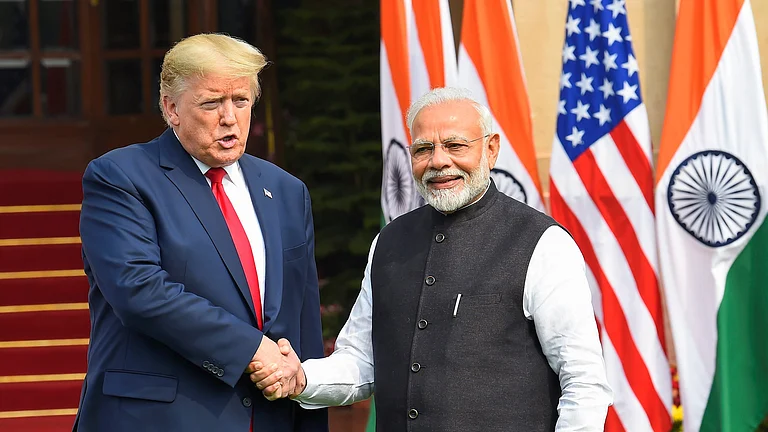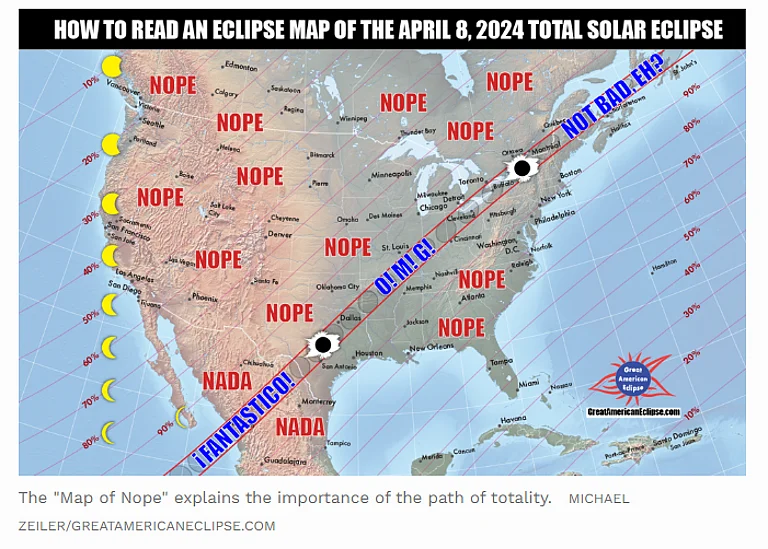“Are you better off today than you were four years ago?" Rarely have voters' answers to that question been so complicated.
Former President Donald Trump asked the time-tested question of his supporters in all-caps Monday on his Truth Social platform. President Joe Biden did the same three times over this week during a trio of Texas fundraisers as he closed out a swing through the southwest.
Each candidate is hoping the answer skews in his favour — but the verdict may well hinge on whether people are reflecting back on the COVID-19 pandemic, the state of their pocketbooks or some broader sense of well-being.
Four years ago, the country was in the throes of a nationwide shutdown due to the coronavirus, with surging joblessness and a cratering stock market. Now the presumptive Democratic and Republican nominees are hurtling toward a rematch in which the virus for most Americans is but a traumatic memory, markets are up and unemployment is at or near record lows.
If the handling of the once-in-a-century outbreak defined the 2020 presidential race, it appears that voters have other things on their minds as they consider their choices in 2024.
“Speaking of Donald Trump, just a few days ago, he asked the famous question at one of his rallies: Are you better off today than you were four years ago?” Biden told donors this week. “Well Donald, I'm glad you asked that question, man, because I hope everyone in the country takes a moment to think back when it was like in March of 2020.”
From there, Biden plunged into a recitation of dark moments from the early days of the pandemic, when hospital emergency rooms were overcrowded, first responders were risking their lives to care for the sick and some nurses resorted to wearing trash bags due to the scarcity of personal protective equipment.
Trump, for his part, tosses out a wider net in reflecting on the American psyche.
“Under the Trump administration, you were better off, your family was better off, your neighbours were better off, your communities were better off, and our country was far, far, far better off; that's for sure,” he said at a rally this month. “America was stronger and tougher and richer and safer and more confident.”
“You have wars that never would have taken place," Trump claimed. "Russia would have never attacked Ukraine. Israel would have never been attacked. You wouldn't have had inflation.”
The “are you better off” prompt traces its roots to the 1980 presidential race, when Ronald Reagan skewered then-incumbent President Jimmy Carter during a televised debate and catapulted himself to the White House.
In a February AP-NORC poll, just 24 per cent of Americans said they were better off than they were when Biden became president, while 41 per cent said they were worse off and 34 per cent said neither. Majorities also said the country as a whole and the national economy were worse off than when Biden became president.
Biden aides contend that the question — like other polling barometers of presidential performance — has been overtaken by partisanship. They say their internal surveys have shown that voters tend to block out the pandemic from their memories unless reminded of it, and that when asked about Trump they tend to think of the pre-pandemic years rather than 2020.
Insisting that they are focused on meeting voters where they are, Biden's team had not intended to put the Reagan question to voters. But once Trump chimed in, Biden was quick with a rejoinder.
Speaking to well-heeled Texas donors Biden reminded his audience that four years ago, morgues were being set up outside of hospitals because so many people were dying, unemployment shot up, the stock market sank and grocery store shelves were bare. Trump, at the time, was disregarding the advice of his public health experts and pushing unproven treatments on the public.
“Remember when he said inject bleach?" Biden asked in Houston. After some chuckles, Biden continued: “I think he must've done it.”
Concurrently, Biden's team released an ad highlighting some of Trump's most controversial moments from 2020, including the bleach comment, his self-assessment that he'd rate his response to the pandemic a “10” and his reflection on virus deaths that “it is what it is.”
Trump earned abysmal marks from voters four years ago for his handling of the pandemic, which cost him the White House, and more than 1.1 million people in the US would go on to die from COVID-19. But the majority of those deaths occurred during Biden's presidency as he struggled to contain new variants and to drive up vaccination rates for the life-saving shots that were developed during Trump's term.
The “better-off” answer, then, can go in multiple directions.
“Today, the answer is unequivocally it depends,'" said Republican strategist Alex Conant. “The pandemic is over, but nobody blames Trump for causing the pandemic or credits him with the vaccines that ended it. The economy is doing well, but only after a bout of historic inflation that people are still upset about. For most voters, the answer isn't clear — which is why the outcome of the election itself is unclear this far out.”
He added: “I don't think any voters want to go back to the dark days of 2020, but judging by the poll numbers, most voters don't like 2024 very much either.”





























